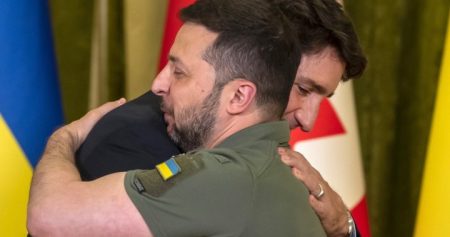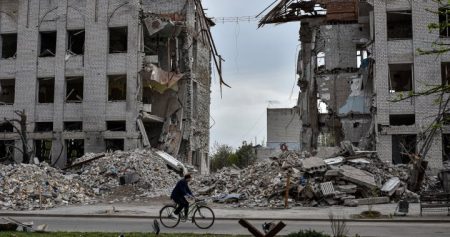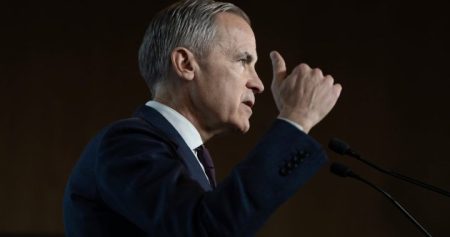The long-standing reputation of Canadians for politeness has encountered a formidable adversary: US trade tariffs. A wave of dissent has swept across Canadian arenas, turning the typically respectful observance of the US national anthem into a resounding chorus of boos. This unprecedented display of public disapproval highlights the deep-seated frustration felt by Canadians towards President Trump’s imposition of tariffs on Canadian imports. The economic ramifications of these tariffs, particularly the levies on crucial energy resources like oil, natural gas, and electricity, have struck a nerve with Canadian citizens, prompting them to express their discontent in a manner rarely witnessed before.
The genesis of this public outcry can be traced to an Ottawa Senators game against the Minnesota Wild. Mere hours after President Trump declared an economic emergency and imposed the tariffs, fans in the Canadian Tire Centre voiced their displeasure by booing the Star-Spangled Banner. This initial act of defiance quickly spread like wildfire, igniting similar displays of disapproval at subsequent NHL games. The Calgary Flames’ home game against the Detroit Red Wings witnessed a similar outpouring of boos, further solidifying the trend.
The westward movement of this public sentiment continued as the Red Wings travelled to Vancouver to face the Canucks. The Rogers Arena echoed the same sentiment expressed in Ottawa and Calgary, demonstrating the widespread nature of the displeasure felt across the country. The booing wasn’t confined to hockey arenas either. It reached the basketball court during a Toronto Raptors game against the Los Angeles Clippers, demonstrating that the discontent transcended sport and represented a broader national sentiment.
The reactions from players on both sides of the border reflect the unusual nature of these events. Patrick Kane, a US-born player for the Red Wings, acknowledged the unprecedented nature of the booing, while expressing a degree of understanding given the circumstances. Chris Boucher, a Canadian player for the Raptors, pointedly connected the booing to the economic hardship imposed by the tariffs, highlighting the direct link between the political and economic climate and the public’s response.
While these displays of public disapproval might seem surprising given Canada’s reputation for politeness, they are not entirely without precedent. Similar incidents of booing the US national anthem occurred in Canada during the early 2000s in response to the US-led war in Iraq. These historical parallels suggest that while Canadians are generally reserved, they are not averse to expressing their disapproval when faced with perceived injustices or actions that negatively impact their country.
The widespread booing of the US national anthem at sporting events serves as a powerful indicator of the strained relationship between Canada and the US under the backdrop of trade tensions. The public display of disapproval represents a significant departure from the usual Canadian decorum and highlights the deep-seated frustration and anxiety caused by the tariffs. While the long-term implications of these events remain to be seen, the booing serves as a stark reminder of the potential for political and economic disputes to spill over into the cultural and sporting arenas, impacting the relationship between nations and their citizens.










